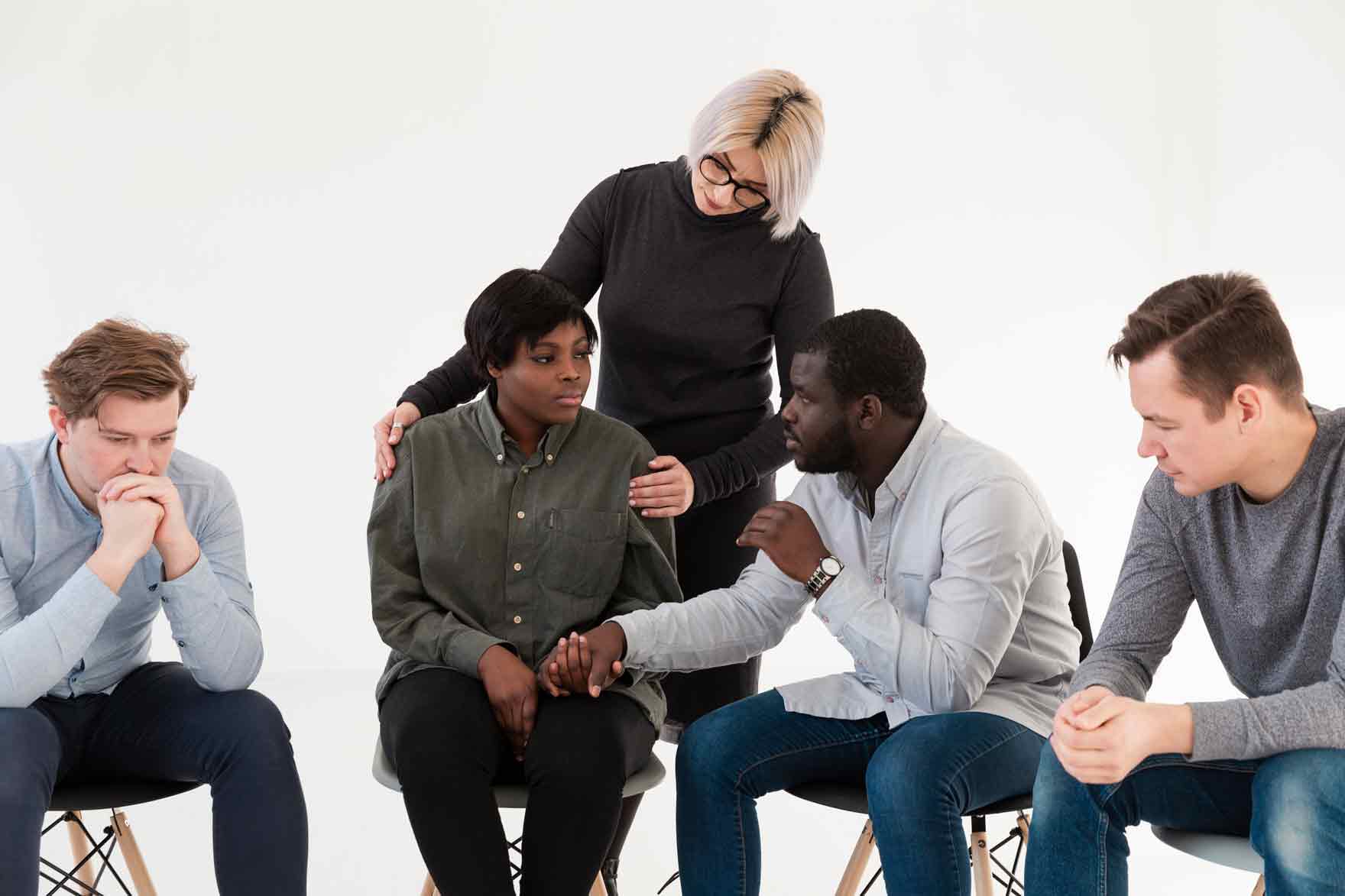
Our nation’s mental health crisis is arguably at an all-time high. The demand for treatment has soared, exacerbating the shortage of mental health providers and adding to their already-significant waitlists. We are confronted with the ultimate health care supply chain problem — it takes almost a decade to train a psychiatrist and more than six years to train a licensed social worker. And we simply can’t wait that long.
The dire shortage of mental health professionals and increased demand for providers, coupled with insurance issues and coverage gaps, leave many people without adequate access to mental health care. And for marginalized populations, the lack of access to culturally appropriate mental health care is even more dire.
We are two psychiatrists working in the national mental health advocacy arena, representing hundreds of thousands of families as well as clinical and scientific advances, and we believe a non-clinical solution can help immediately: peer support.
The Case For Peer Support
People often assume that talking about mental health (and suicidal thoughts) may make the situation worse. In the American Foundation for Suicide Prevention’s (AFSP) 2020 Harris Poll, over 90% of American adults say they would want to help someone in their life who is feeling suicidal, however a majority say they need knowledge or skills to effectively engage. Of those polled who were struggling, 69% identified barriers that keep them from discussing their experiences with others, including shame, fear of judgment or not knowing what to say.
Every culture has its own version of beliefs that perpetuate stigma: “buck up and stay strong,” “don’t show weakness,” “men don’t cry.” A multitude of beliefs rooted in a time when mental health was poorly understood discourage open communication and have the unintended consequence of keeping people suffering in silence. We know that isolating and keeping distress hidden not only leaves mental health problems to fester and worsen — it also increases the risk of suicide.
However, one positive outcome of the pandemic has been that the universal rise in mental health distress led to progress in acknowledging what has always been true: it’s human to struggle, and we need each other to get through difficult times.
ADS
Like never before, more of us are talking about the full spectrum of mental health experiences, including loneliness, pain and the comparison game (where we never seem good enough compared with others). More of us are sharing on deeper levels with family, friends, colleagues and even strangers. We also have new opportunities through support groups, social media and even workplace groups to find other people who are experiencing similar mental health challenges such as depression, anxiety, substance use, PTSD, bipolar disorder or schizophrenia.
In NAMI’s new book “You Are Not Alone,” more than 125 people interviewed attested to their experience that shame and stigma still prevent many conversations around mental health. When they began having open conversations about their struggles, they began to experience profound insights, connection and progress. These interviewees volunteered to share their stories and use their real names in the book to reduce the shame and isolation they knew well. These brave testimonials have the potential to positively affect others who are struggling with their mental health. The radical idea that living with a mental health condition is nothing to be ashamed of and may even be considered a form of expertise (lived experience in the mental health advocacy world) — is both powerful and underused.
Available Support Groups
Support groups are not a substitute for professionals. They are a resource that can offer people something unique: connection and the certainty that they are not alone. The peer movement is thriving on virtual platforms as well as in person, and there are many free, accessible and credible resources within reach to connect to peer support groups:
- Want to meet others coping with mental health conditions? Look for a NAMI Connections or Depression Bipolar Support Alliance meeting.
- Want to find support in the Black community? Check out the Confess Project where barbers are trained to promote authentic conversations.
- For those looking for support for substance use recovery that isn’t higher-power based, SMART Recovery might be for you.
- If you are facing challenges or rejection due to your gender identity, The Trevor Project has groups who understand what you’re going through.
- Are you a teenager seeking someone who will listen? Explore Letters to Strangers. Additionally, AFSP, The Jed Foundation and Ad Council have a successful ongoing campaign called Seize the Awkward with tools for young people to open supportive dialog with a peer who may be struggling.
- Do you have an adult child with a serious mental health condition? Look at NAMI Family to Family and NAMI Family Support Groups.
- Have you lost a loved one to suicide or supported someone in your life who struggles? Use AFSP’s support group finder to find a group across the country.
The Healing Power Of Connection
As psychiatrists who both had turning points in our own lives related to lived experience or suicide loss, we were able to bring our full selves to this work through speaking from not only our clinical and scientific expertise, but also from our lived experience. Within our nationwide networks at NAMI and AFSP, we are witnessing the healing power of connection through shared experiences.
By speaking out, we not only receive validation and support, but we realize that we can offer comfort and hope to others. Those who want to do more can learn how to invite dialogue, truly listen without judgment and have deeper conversations. More than ever, our society is saying it wants and needs guidance to engage in these conversations in supportive ways, which means increasing cultural awareness, humility and availability around helpful resources to reach everyone.
Of course, we need many more professionals and ways to bring them into this remarkable and rewarding field. In the meantime, those experiencing mental health challenges should know that there are people who understand, who can offer support and help them move forward. You’ll be surprised how opening up more authentic conversations and connecting with peer support are two avenues that can help in powerful ways.
Christine Yu Moutier, M.D., serves as Chief Medical Officer of the American Foundation for Suicide Prevention.
Ken Duckworth, M.D. serves as NAMI’s Chief Medical Officer.


